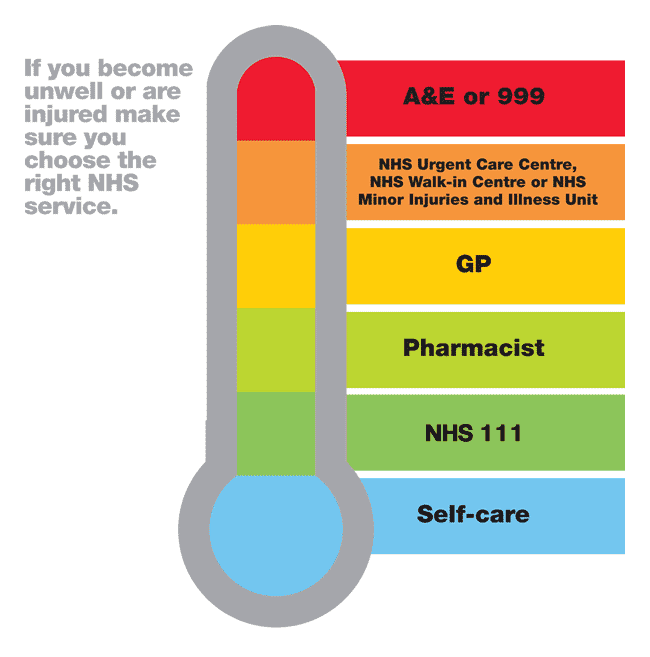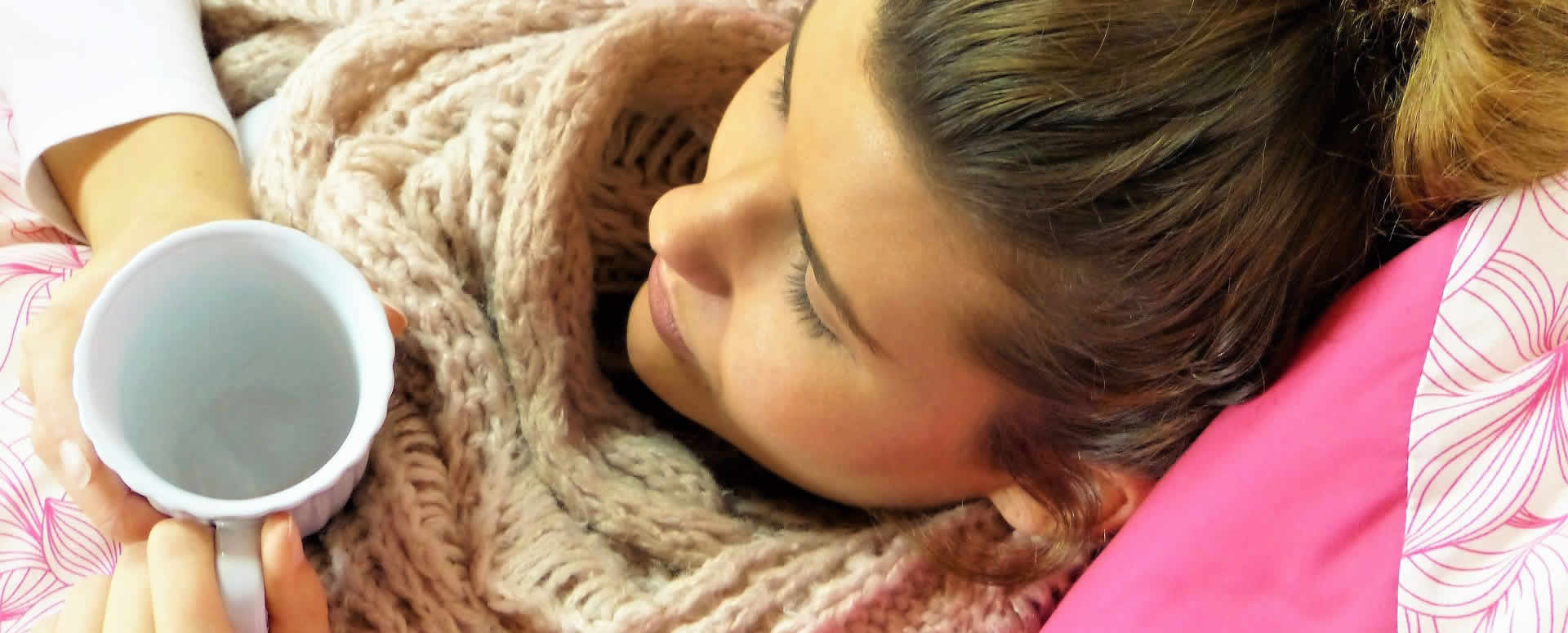For a lot of common illnesses and ailments there is no specific cure and they will be relieved with time and simple remedies available without prescription. Therefore, please do not expect your doctor to prescribe a drug for every problem. Discussion and advice may be far more useful and free from side effects.
Use the NHS A-Z of health to find advice on ways you can help yourself.
The chart below also offers some practical advice on how to approach your ill health:

Can you treat yourself at home?
We feel it is important that all households should keep a well stocked medicine cabinet at home to deal with minor ailments. Remember all medicines should be stored in a box or cupboard with a lock and kept well out of the reach of children. Always check the expiry date on medicines and do not keep them for future use, as they lose their effect or become dangerous.
Have you spoken with your pharmacist?
Pharmacists are qualified to dispense not only medicines, but also advice on a range of common complaints such as sore throats, aches & pains, colds and the flu.
They can also answer questions on medications and help you with advice on issues such as healthy eating & quitting smoking. Your pharmacist will be well placed to advise if you should see a GP with your complaint.
You can use the find NHS services near you tool to locate nearby pharmacies.
Find out more about how pharmacists can help you
Have you tried NHS 111?
NHS 111 is a 24 hour a day health information and advice service staffed by professional health advisers and nurses. They offer free, confidential advice on what to do if you are ill, and provide information on a range of conditions & services, and can put you in contact with your local health, self-help & support organisations and refer you to your out-of-hours doctors service when your surgery is closed.
Ring NHS Direct by dialling 111. Calls are free from landlines and mobile phones. You are also able to contact them by filling in a form via the NHS 111 website.
Do you need a walk-in centre or urgent treatment centre?
Before going to A&E consider if you would get the right treatment at an urgent care centre or walk-in centre. NHS Walk In Centres treat around 3 million patients a year and have proved to be a successful complementary service to traditional GP and A&E services. Some centres offer access to doctors as well as nurses. However, they are not designed for treating long-term conditions or immediately life-threatening problems.
You can use the NHS urgent care services website to search for your local urgent treatment centres and minor injury units
Do you need to seek emergency hospital treatment?
A&E departments assess and treat patients who have serious injuries or illnesses. You should visit A&E or call 999 for emergencies if you have a medical emergency that cannot be treated by the surgery, the Walk-in-Centre or the Out of Hours Service. Examples of conditions where you should attend A&E are:
- loss of consciousness,
- pain that is not relieved by simple analgesia,
- acute confused state,
- persistent, severe chest pain, or
- breathing difficulties.
If you're injured or seriously ill, you should go, or be taken, to A&E. If an ambulance is needed you can call 999, the emergency phone number in the UK.
Major A&E departments offer access 365 days a year and usually open 24 hours a day. Be aware that not all hospitals have an A&E department.
Search for your local A&E services on the NHS website.






